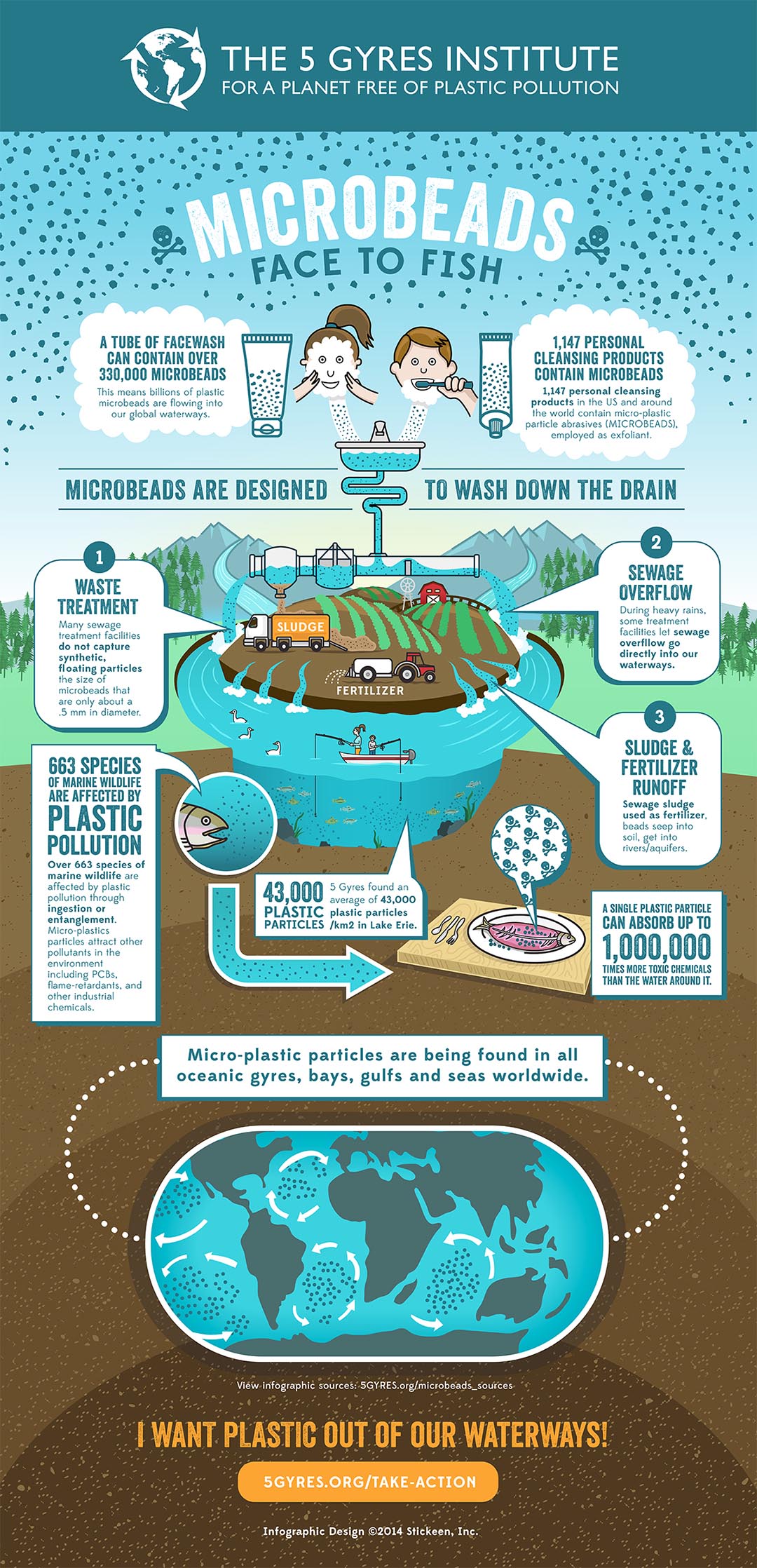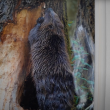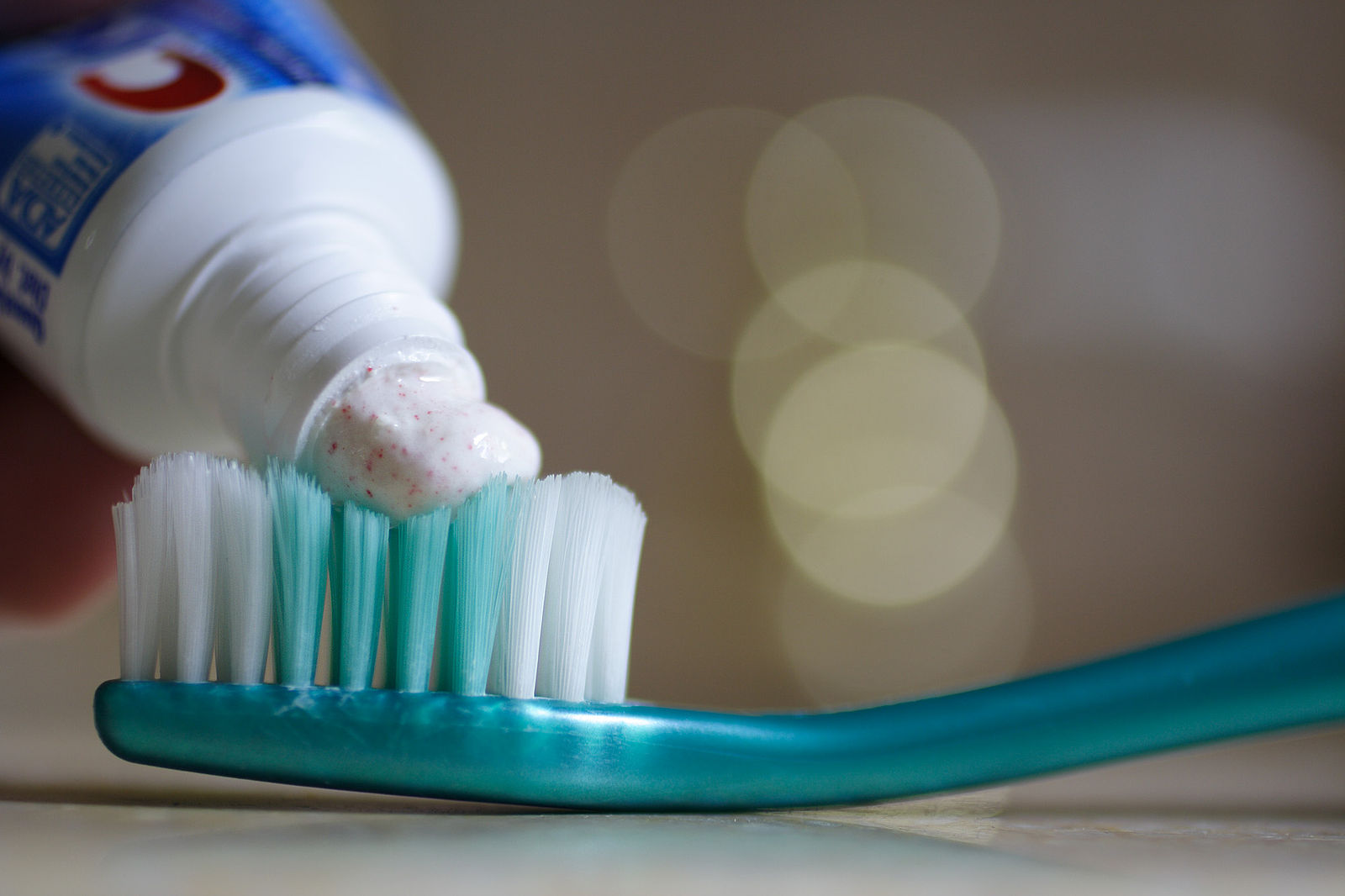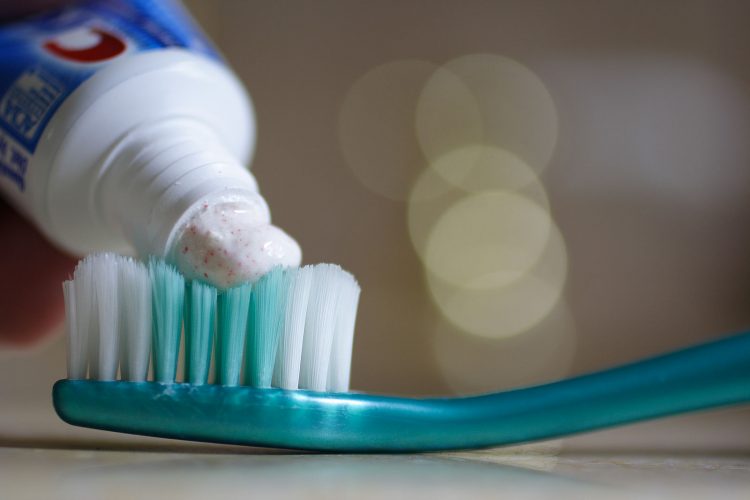Tonnes of plastic waste is ending up in the oceans, where weathering, sunlight and wave action reduce them to smaller pieces. Dubbed the ‘plastic soup’, this situation can turn the oceans into deadly environments for marine life.
Yet there is another source of pollution: microbeads – the tiny, seemingly harmless plastic particles that are mixed into cleansing products and not filtered by the sewage system.
Microbeads are usually made of polyethylene, the most common plastic, and come in such small size that they slip through the 5-millimetre water filtration. With a single application of face wash or toothbrush, hundreds of thousands of microbeads go down the sink. Upon joining the plastic soup now circulating the sea, microbeads are absorbed or eaten by marine animals and later return to the food chain of which human is on top. These plastic spheres are not biodegradable and impossible to remove from the seas.
Photo: Wikimedia Commons
A recent poll by Greenpeace UK shows two-thirds of the British public support banning microbeads. The group is among 82 NGOs from 35 countries backing this campaign, calling cosmetic brands to put an end to the use of plastic particles. Some UK chain stores have pledged not to use microbeads in their own brand products, but other products with these might still be in stock.
In Bournemouth, the local Greenpeace group have not taken actions to urge stores to stop selling such products. Ben Kemp, coordinator for Greenpeace Bournemouth and Poole says, “I’m afraid Greenpeace UK don’t currently have any campaigns active on this, and so it’s not a focus for us as a local group either.”
As a coastal town, Bournemouth sets out policies to minimise the impacts of water-based pollution. Councillor Mark Anderson, Chairman of the Environment & Transport Panel, says he is opposed to the release of microbeads and any other plastic into the environment.
“I’m concerned about the amount of plastic in the ocean and the effect it’s having on wildlife, particularly as it degrades with ultraviolet light and merely forms smaller and smaller particles.”
“We could potentially end up with beaches that are completely made up of these microscopic parts,” Mr Anderson warns.
He adds, “There are well recorded instances of animals starving to death because the stomachs are full of plastic.”
A petition to ban the use of plastic microbeads in all cosmetic products sold in the UK was closed in January. The Department for Environment, Food and Rural Affairs responded, “The UK and neighbouring countries are working with industry to achieve a voluntary phase out of plastic microbeads in cosmetics and other personal care products.”










